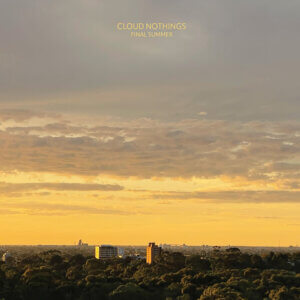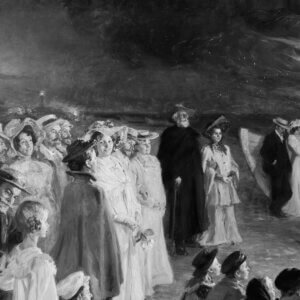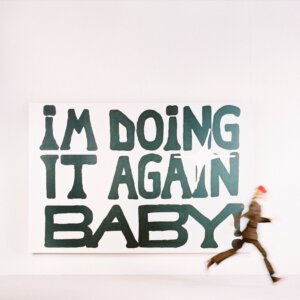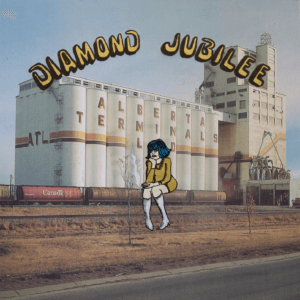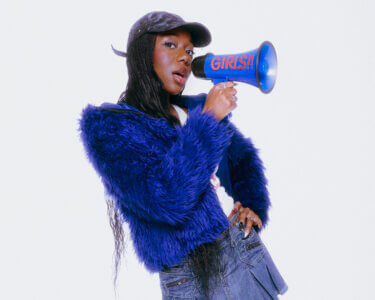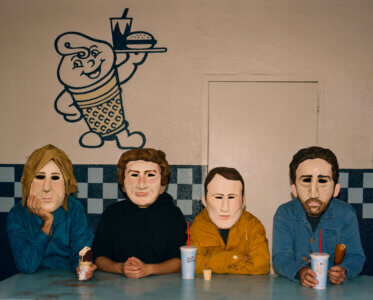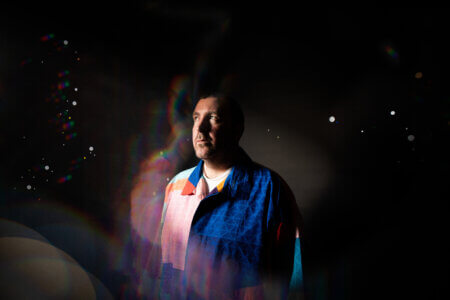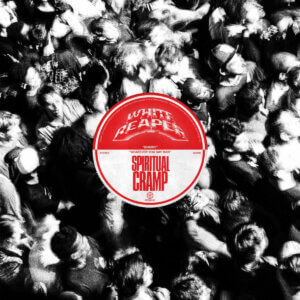
8.2
Opposites
Biffy Clyro
We haven’t heard new material from Biffy Clyro since 2009’s Only Revolutions, their longest gap between albums yet, and when word spread that their new one would be a double album, many feared the worst. A double album: historically the platform for bands trying to prove they’re more serious than the average rock group (think Tommy) and a way for bands to experiment with more diverse sounds (think Exile on Main Street). As the album title suggests, both discs are meant to explore opposite themes, with the first disc The Sand at the Core of our Bones touching on the challenges of dealing with new found fame (drummer Ben Johnston’s drinking problem, a band on the brink of breaking up), and the second, The Land at the End of our Toes, containing more uplifting themes (a band unified behind a common goal despite adversity).
A solid double album with little filler is a tough task for any band to accomplish, and at times Opposites makes the listener feel like this Scottish trio is capable of such a challenge, however at other times the listener feel like this band is nothing more than Top 40 radio-friendly rock. These divisions often occur within a single song, take the first single from the album, Black Chandelier, for example. The “drip, drip, drip” at the beginning of the track may be pulled off by Freddie Mercury, but feels completely out of place and unnecessary once the rest of the song kicks in, peaking at the three minute mark with the distorted riffage that the trio is known for.
The first hushed moment of the album is Opposite, with an emotional Simon Neil telling the listener to “take care of the ones that you love” and pleading a girl to leave him for somebody else. The song manages to find a balance of being soft and impassioned without sounding overly cheesy. For every memorable lyric, there are moments where Simon Neil tries to sound introspective, but ends up sounding ridiculous. Some of these failed attempts at grandiose statements wouldn’t feel out of place coming out of Tom Delonge’s mouth on a cheap Angels and Airwaves track, such as the line “are we alive because God saved us or is life just a juggernaut?” on The Joke’s on Us.
The band is at their creative height on The Fog, a song that starts with subdued vocals accompanied by light keys, and slowly rises into a crashing wave of noise finale where the band is free to flaunt their Nirvana influence. The Thaw is a passionate cry from Neil about trying to carry on a relationship on the brink of falling apart, eluding to the band’s near-breakup and his desperation to hold everything together.
The Land at the End of Our Toes opens with drummer Ben Johnston being set free, setting the pace for Stingin’ Belle, one of the better straight ahead rock songs on Opposites. The track sounds more complete than others on the record, and Biffy Clyro deserves full marks for somehow successfully integrating bagpipes into a song without having the whole thing collapse. Everything about Spanish Radio sounds massive, from the mariachi band, to the string arrangement, to Neil’s yelling “you can be lost at the same time as being found”, to the innovative drumming; making this one of the definitive songs off the album.
It’s easy to imagine stadiums bellowing the chorus of Trumpet or Tap back at the band, and most songs on Opposites sound capable of having tremendous effects on stadium audiences all across the UK. Accident Without Emergency finds Biffy Clyro lyrically more vulnerable than any other part of the album, but they manage to make it one of the disc’s most uplifting songs at the same time.
Double albums of recent memory have been cursed by too much filler. This album isn’t too heavy on filler, however loses points for a lack of originality. Press leading up to the release boasted a more diverse sound with “bagpipes, kazoos, and mariachi bands”; however the band never recreates the wheel on this record. With only short snippets of different instruments here and there, there isn’t much separating the sound of the album from other commercially attractive rock bands (Kings of Leon, The Killers). The material for a great album is hidden somewhere within these twenty tracks, however the band often seems torn between being commercial radio rock darlings, or thrashing out to the loudest of their abilities. The album boasted two discs of opposite themes, but many of the tracks seem like they can be interchanged on either disc. Even without solid backboned themes running through each album, the songs themselves sound exciting and provide several thrills for listeners. The album closes with Picture a Knife Fight, with Simon Neil echoing the line “we’ve got to stick together”, reflecting on a band that has been through its tough times, but sound like they will continue to be around for a long time to come. There are commercial pop overtones to several songs on Opposites, but it’s not too challenging for the listener to find what’s truly at the core of Biffy Clyro: three blokes from Scotland trying to be the stadium rock band of their generation.
-Stewart Wiseman
Latest Reviews
Tracks
Related Albums
Related News
Advertisement
Looking for something new to listen to?
Sign up to our all-new newsletter for top-notch reviews, news, videos and playlists.
